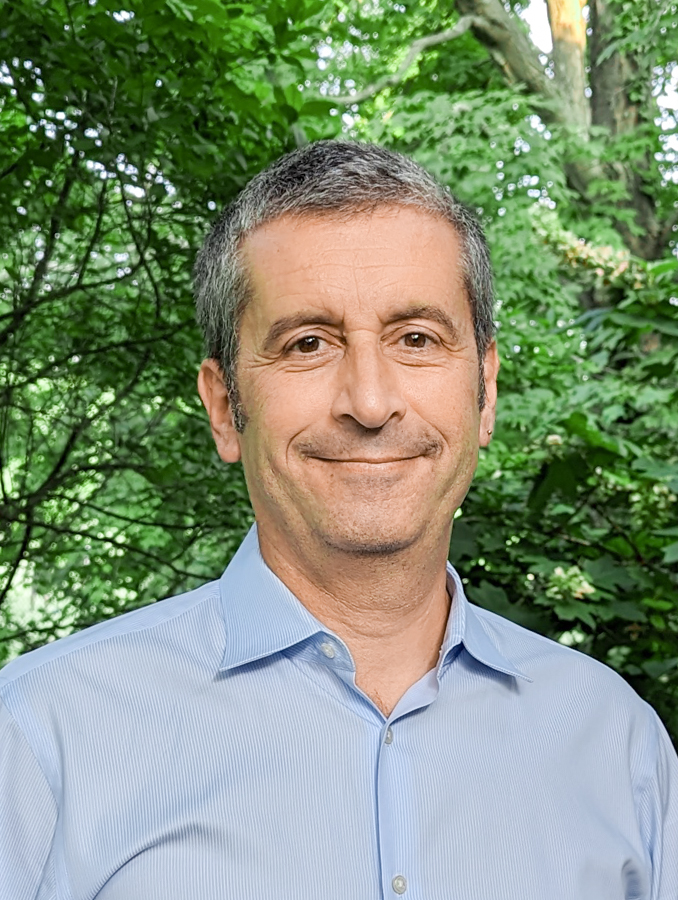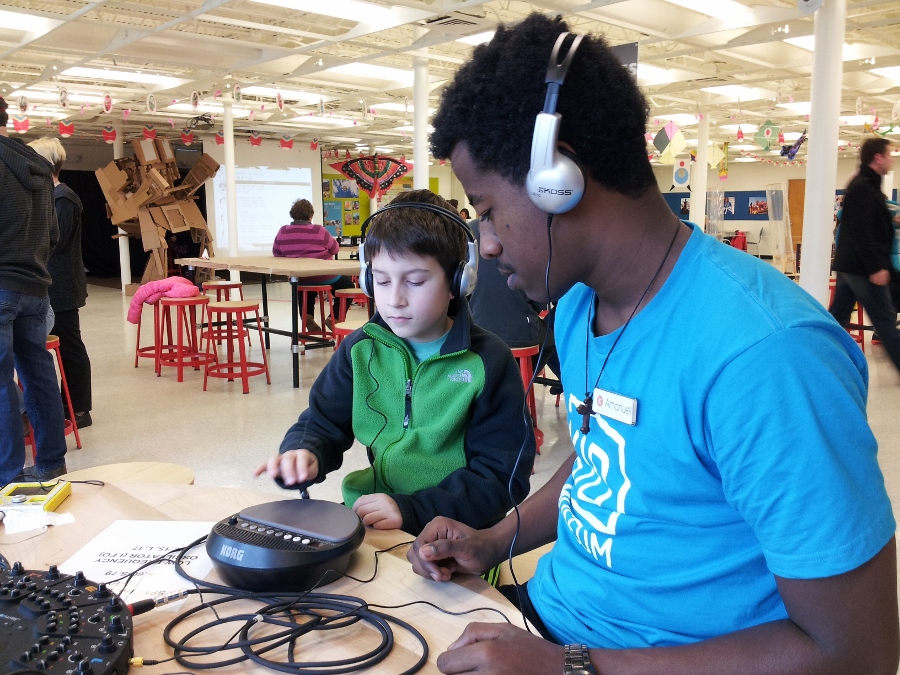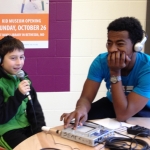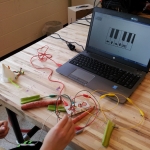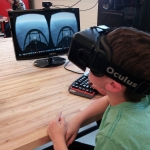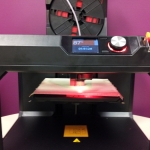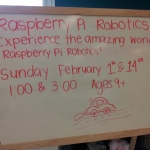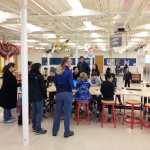Davis Library, 6400 Democracy Boulevard, Bethesda, MD 20817
kid-museum.org | info@kid-museum.org | 301-897-5437
This weekend, after having heard about KID Museum and looking at their website, we thought we’d give it a try with our son. We weren’t entirely sure what to expect. We’re glad we went.
KID Museum, which opened in October 2014, occupies the lower level of Davis Library. KID Museum leased the space for three years from the Montgomery County government. As of this post, the museum is open on Saturdays and Sundays from 10 am to 5 pm. Admission is $8 per person.
KID Museum isn’t really a “museum” at all. It’s all about hands-on experiencing and learning about science and technology. The museum is geared to kids in elementary and middle school. There are nine or ten stations, each with a different focus, and each staffed by a trained, knowledgeable high school student there to facilitate interactive learning. Here is some of what we experienced/learned:
Electricity: We created circuits using batteries, switches, lights, motors and connector wires. We experimented by adding more lights and motors, in parallel and in series, to see what the effects would be. In a matter of minutes, our son, for the first time, truly comprehended how electricity works. How cool is that?
Virtual Reality: Our son and I tried out the museum’s pair of Oculus virtual reality goggles. Wow, the technology is pretty amazing (although we also learned and talked about how it’s still a bit nausea-inducing – something the industry, apparently, continues to work on).
Electronic Music: We played around for awhile with music synthesizers and voice enhancers. Our son, who plays the drums, was really intrigued by the range of ways they can be used. I’m now imagining some electronics in his musical future sometime soon.
Mechanical Art: Using plastic cups, small battery operated motors, tape and markers, we made devices which, when turned on, made drawings by themselves. We talked about why patterns could be seen in the drawings which were made.
Design & Manufacturing: They have a 3D printer – we’d never seen one in use before. We considered how 3D printers have the potential to revolutionize the way many things are made.
Aerodynamics: There were several vertical wind tubes running. We experimented by making various aircraft and parachutes out of paper and other materials to see what would fly the best (or fly at all).
Each weekend and some weekday afternoons/evenings, the museum also offers workshops dedicated to deeper exploration of particular topics. For example, while we visited, a 90-minute workshop was being offered for kids to learn how to build programmable robots using Raspberry Pi mini-computers. Workshops are typically led by people with significant, directly relevant career experience.
KID Museum has big, worthwhile ambitions – within three years, they’re aiming to move to a larger, permanent space somewhere in Montgomery County (location to be determined). This will allow them to expand their programming and further incorporate cultural elements into what they offer.
Kudos to everyone involved with KID Museum, a very welcome addition to the community. We enjoyed our first visit and look forward to trying out some of their workshops and maybe even a summer camp session or two in July.
- Register for workshops in advance – they often are fully booked ahead of time. To keep apprised of what’s scheduled, sign up for their weekly email (via “Email Sign Up” on their home page). Links in each email make it easy to register for particular workshops.
- Check out the summer camp sessions they offer this summer in July for rising 4th through 8th graders (at kid-museum.org/summer-camps/).
- High school students and select 8th graders can apply to the “student apprentice program” (i.e., become a staff member for a semester and earn Student Service Learning (SSL) hours).
- Consider donating (at kidmuseum.nonprofiteasy.net//PublicPages/Donation/Details.aspx?did=216). KID Museum is a nonprofit organization. Your contributions (tax deductible) will help fund their programming and future move to a larger, permanent space.
